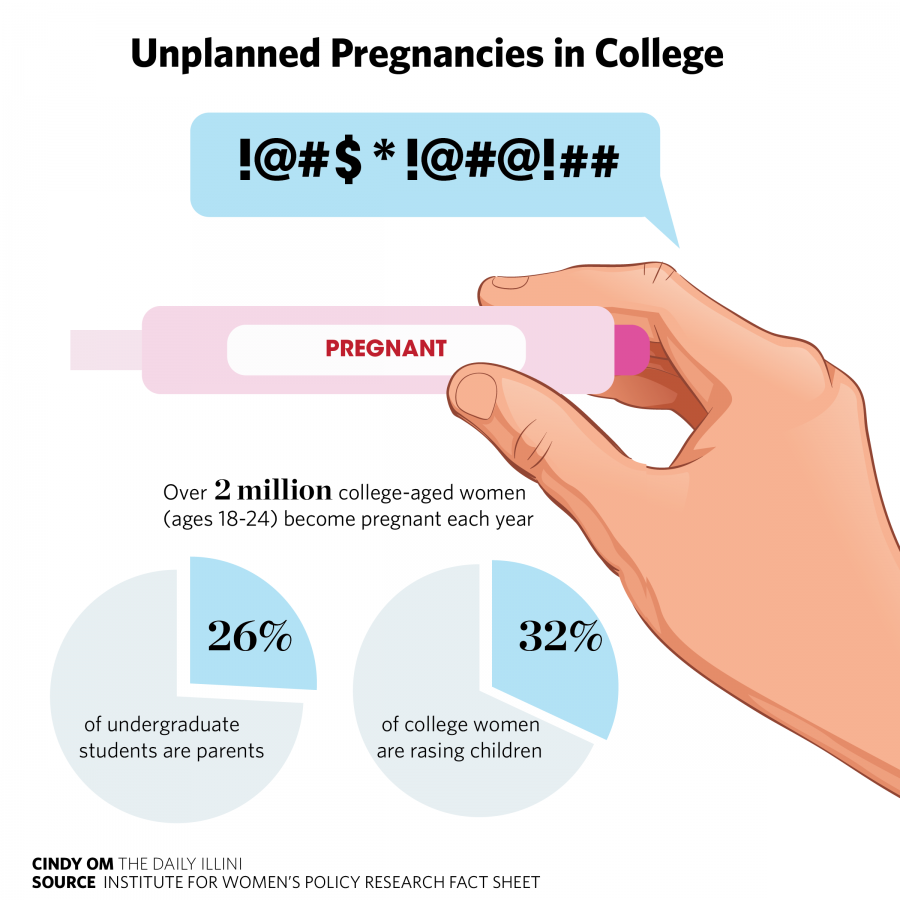Editorial: Plan for the unplanned and learn about University resources
April 12, 2017
While focusing on all of the stress that life as a college student entails, an unplanned pregnancy can be the last thing on a student’s mind.
As the case of former University student Lindsay Johnson highlights, students who are unprepared for pregnancy need to know their resources more than ever in order to prevent more tragedies.
School is hard enough without feeling as though you are alone on this campus and in a situation that is foreign to you. Unfortunately, unplanned pregnancies do happen. Over 2 million college-aged women (ages 18-24) become pregnant each year, and 4.8 million undergraduate students in the U.S. are raising dependent children.
A student’s decision regarding their unplanned pregnancy is completely personal, and we are not advocating for one choice above another; however, because there is not always a clear answer, a variety of resources must be readily available for those seeking help.
The Women’s Resource Center provides students with several different options when it comes to an unplanned pregnancy. Students can come in completely lost and be directed toward their best options in a confidential setting.
Get The Daily Illini in your inbox!
Counselors can set students up with other services, direct them to support groups and provide them with short-term counseling, regardless of the choices they make regarding the pregnancy.
The Women’s Health Clinic at McKinley Health Center also offers students with confidential resources along the way. Aside from providing contraception and home pregnancy tests, students can speak with a women’s health nurse regarding their choices, where they will be provided with additional counseling.
Nurses can also present students with places to seek out affordable health care depending on what the student decides.
The University also provides students with the option of visiting the Counseling Center.
Reaching out and utilizing resources depend on action. Denial is a large part of unplanned pregnancies; students can be scared of the choice they will eventually have to make.
The Counseling Center provides short-term counseling and emotional help for students who are in need of support.
Outside of the University, there is the Baby Safe Haven Organization, which aims to keep infants safe by preventing parental abandonment.
In Illinois, students can leave their uninjured baby, up to 30 days old, with a staff member at any hospital, police station or medical services provider without any questions being asked.
For those who are scared of admitting their pregnancies, the Safe Haven option allows for students to leave their baby in a much safer environment than total abandonment.
Since the Safe Haven law was passed in 2001, 110 children have been legally relinquished to safe havens and survived as of 2015. This is in comparison to 75 children who were abandoned at a place other than a safe haven as of 2015, who ended up dying.
In 2011, the Safe Haven Law was updated to include college and university locations when police department employees are present.
However, some students realize that being pregnant in college is not the best option for them.
In this case, students up to 10 weeks pregnant can visit the Planned Parenthood in Champaign to learn about other options.
Students need to realize that they do not have to be alone in the decision-making process and that there are several locations available for them when they are in trouble.
No one should have to feel like there’s nowhere for them to turn, and no one for them to talk to. There are always people you can turn to, and this campus makes sure there are places that can help students in difficult situations.







